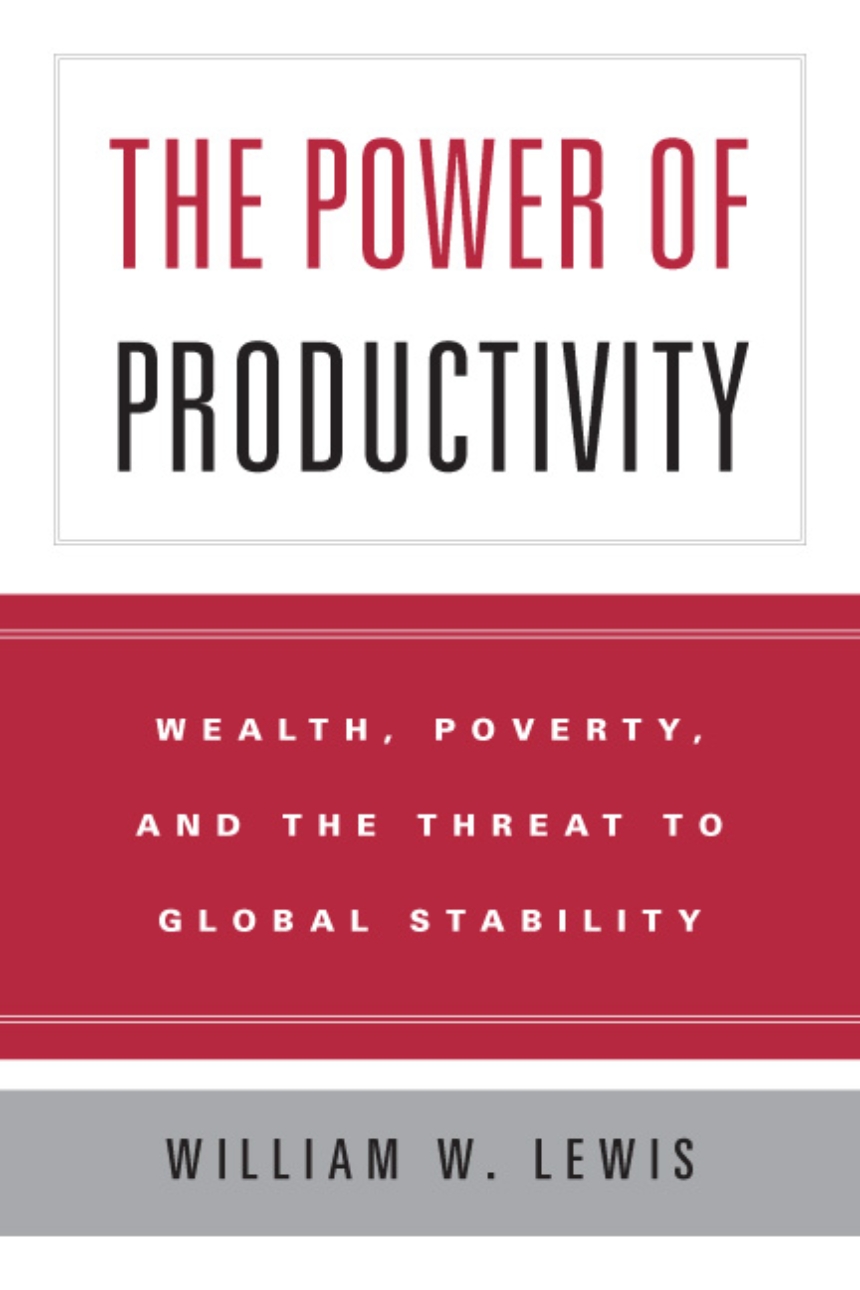The Power of Productivity
Wealth, Poverty, and the Threat to Global Stability
9780226476988
9780226477008
The Power of Productivity
Wealth, Poverty, and the Threat to Global Stability
The disparity between rich and poor countries is the most serious, intractable problem facing the world today. The chronic poverty of many nations affects more than the citizens and economies of those nations; it threatens global stability as the pressures of immigration become unsustainable and rogue nations seek power and influence through extreme political and terrorist acts. To address this tenacious poverty, a vast array of international institutions has pumped billions of dollars into these nations in recent decades, yet despite this infusion of capital and attention, roughly five billion of the world’s six billion people continue to live in poor countries. What isn’t working? And how can we fix it?
The Power of Productivity provides powerful and controversial answers to these questions. William W. Lewis, the director emeritus of the McKinsey Global Institute, here draws on extensive microeconomic studies of thirteen nations over twelve years—conducted by the Institute itself—to counter virtually all prevailing wisdom about how best to ameliorate economic disparity. Lewis’s research, which included studying everything from state-of-the-art auto makers to black-market street vendors and mom-and-pop stores, conclusively demonstrates that, contrary to popular belief, providing more capital to poor nations is not the best way to help them. Nor is improving levels of education, exchange-rate flexibility, or government solvency enough. Rather, the key to improving economic conditions in poor countries, argues Lewis, is increasing productivity through intense, fair competition and protecting consumer rights.
As The Power of Productivity explains, this sweeping solution affects the economies of poor nations at all levels—from the viability of major industries to how the average consumer thinks about his or her purchases. Policies must be enacted in developing nations that reflect a consumer rather than a producer mindset and an attendant sense of consumer rights. Only one force, Lewis claims, can stand up to producer special privileges—consumer interests.
The Institute’s unprecedented research method and Lewis’s years of experience with economic policy combine to make The Power of Productivity the most authoritative and compelling view of the global economy today, one that will inform political and economic debate throughout the world for years to come.
The Power of Productivity provides powerful and controversial answers to these questions. William W. Lewis, the director emeritus of the McKinsey Global Institute, here draws on extensive microeconomic studies of thirteen nations over twelve years—conducted by the Institute itself—to counter virtually all prevailing wisdom about how best to ameliorate economic disparity. Lewis’s research, which included studying everything from state-of-the-art auto makers to black-market street vendors and mom-and-pop stores, conclusively demonstrates that, contrary to popular belief, providing more capital to poor nations is not the best way to help them. Nor is improving levels of education, exchange-rate flexibility, or government solvency enough. Rather, the key to improving economic conditions in poor countries, argues Lewis, is increasing productivity through intense, fair competition and protecting consumer rights.
As The Power of Productivity explains, this sweeping solution affects the economies of poor nations at all levels—from the viability of major industries to how the average consumer thinks about his or her purchases. Policies must be enacted in developing nations that reflect a consumer rather than a producer mindset and an attendant sense of consumer rights. Only one force, Lewis claims, can stand up to producer special privileges—consumer interests.
The Institute’s unprecedented research method and Lewis’s years of experience with economic policy combine to make The Power of Productivity the most authoritative and compelling view of the global economy today, one that will inform political and economic debate throughout the world for years to come.
Read an excerpt.
368 pages | 37 line drawings | 6 x 9 | © 2004
Economics and Business: Business--Industry and Labor, Economics--Development, Growth, Planning, Economics--International and Comparative
Reviews
Table of Contents
Acknowledgments
Prologue
1. Findings: The Global Economic Landscape
Part 1 - Rich and Middle-Income Countries
2. Japan: A Dual Economy
3. Europe: Falling Behind
4. The United States: Consumer Is King
5. Korea: Following Japans Path
Part 2 - Poor Countries
6. Brazil: Big Government Is Big Problem
7. Russia: Distorted Market Economy
8. India: Bad Economic Management from Democratic Government
Part 3 - Causes and Implications
9. Patterns: Clear and Strong
10. Why Bad Economic Policy around the World?
11. New Approaches
12. So What?
McKinsey Global Institute Reports
Recommended Readings
Prologue
1. Findings: The Global Economic Landscape
Part 1 - Rich and Middle-Income Countries
2. Japan: A Dual Economy
3. Europe: Falling Behind
4. The United States: Consumer Is King
5. Korea: Following Japans Path
Part 2 - Poor Countries
6. Brazil: Big Government Is Big Problem
7. Russia: Distorted Market Economy
8. India: Bad Economic Management from Democratic Government
Part 3 - Causes and Implications
9. Patterns: Clear and Strong
10. Why Bad Economic Policy around the World?
11. New Approaches
12. So What?
McKinsey Global Institute Reports
Recommended Readings
